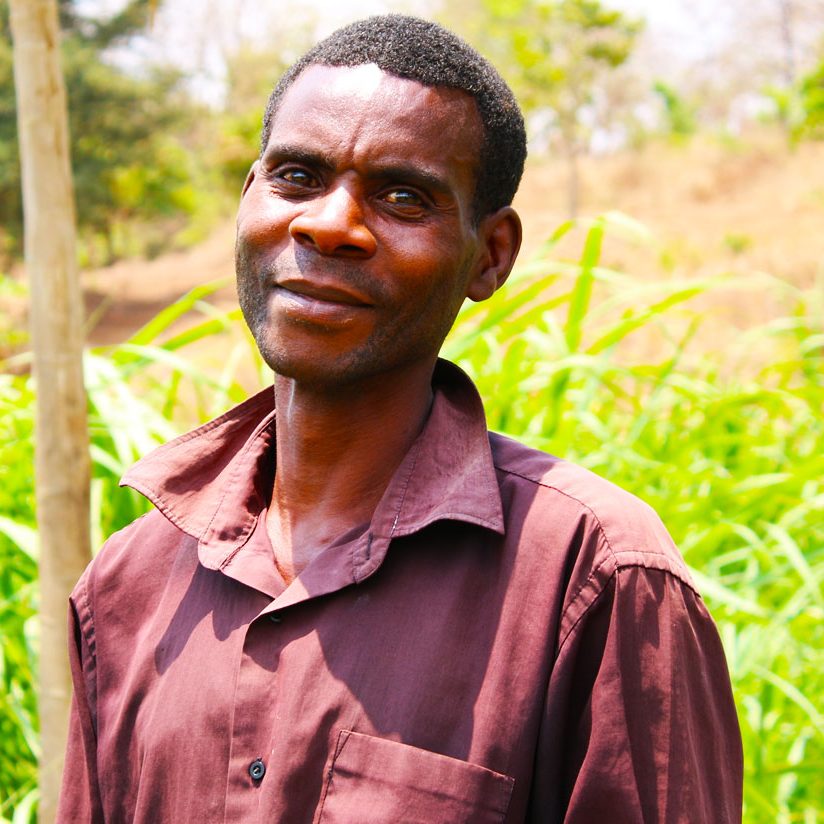
The garden is doing relatively well. From it, I am able to feed my family and help other community members who do not have food.
– Andrew Joseph
“I cannot say I was rich before my HIV positive results, but we had enough as a family,” says Andrew Joseph, who lives in southern Malawi. “I was employed as a guard at a garage in the nearby town and was aspiring to one day become a mechanic.”
Andrew’s life took an unexpected turn in 2010 when constant and inexplicable illnesses led him to discover that he was HIV positive. Weak and unstable, he could no longer work and had to move back to his home village of Mpemba. Once his health stabilized, he took to farming on other people’s land for money to buy food.
He had dreams of one day owning a thriving farm like the ones he worked on. Andrew had unique vegetable farming skills, which he had learned from his grandfather. But he didn’t have the money to buy his own seedlings. In April 2017, a community resource person from CCP’s USAID-funded One Community project paid a visit to Andrew. One Community not only links at-risk Malawians with HIV testing and manages their treatment. It also works to improve the lives of those stricken with the disease through economic assistance and other educational programs.
“Andrew and his family were living in extreme poverty,” says Noel Kangole, the community resource person who came to see Andrew. “Nearby households had a number of cows and flourishing farms while their house contrasted this and definitely stood out.”
During the home visit, Andrew requested HIV testing services for his children along with economic assistance. He shared with Noel his vegetable farm dream and his plans for how it could help lift his family out of poverty. Noel sought assistance from Development Aid from People to People, a local NGO. They provided tomato and leafy vegetable seedlings to Andrew and, in June, he had successfully completed his first planting.
“The garden is doing relatively well. From it, I am able to feed my family and help other community members who do not have food,” Andrew reports. “I also sell some of the vegetables to well-to-do community members and use the money to buy other household supplies, such as soap and sugar. I hope to one day grow enough vegetables to supply nearby schools and shops.”